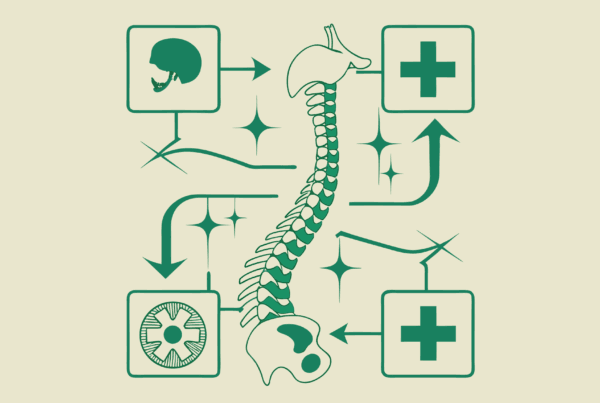Selling your neurology practice in Raleigh is more than a financial transaction. It is the culmination of your life’s work. Navigating this process successfully requires a clear strategy, an understanding of the local market, and a realistic view of your practice’s value. This guide provides a direct overview of what you need to know, from market dynamics in the Triangle to the key steps for achieving a successful exit that protects your legacy and financial future.
Curious about what your practice might be worth in today’s market?
Market Overview
The Raleigh-Durham area is one of the most dynamic healthcare markets in the country. This creates a fertile ground for neurology practices. You operate in a region with a growing, educated population and a high demand for specialized medical care. The presence of major players like Duke Health and large independent groups like Raleigh Neurology Associates isn’t a threat. It is a sign of a healthy, valuable market where strategic buyers are actively looking for opportunities.
This environment means that buyers, from large hospital systems to private equity groups, see the value in establishing or expanding their neurology footprint here. For a practice owner, this translates to significant opportunity. However, it also means you are selling in a sophisticated market. Your practice needs to be positioned correctly to attract the right kind of attention and command a premium value.
Key Considerations
Before you dive into the process, it’s helpful to step back and think strategically. From our experience helping hundreds of physicians, the most successful sales start with answering a few core questions.
-
What Is Your Ideal Timing? The best time to sell is when your practice is performing well and the market is strong, not when you are feeling burnt out. We often tell clients that preparation for a sale should begin 2-3 years before their target exit date. This allows you time to optimize the business and sell on your terms.
-
Who Is the Right Buyer for You? A sale to a local hospital system looks very different from a private equity partnership. One might offer stability while the other offers a potential second payout down the road. Your personal and financial goals should determine the type of buyer you seek.
-
How Will You Protect Your Patients and Staff? A key part of your practice’s value is its reputation and continuity of care. A well-designed transition plan for patients and a strategy for retaining key staff are not afterthoughts. They are central to a smooth and successful transaction.
Every practice sale has unique considerations that require personalized guidance.
Market Activity
The market for medical practices is active. The primary trend we see is consolidation. Independent practices are increasingly partnering with or selling to larger entities. In Raleigh, this means the most likely buyers for a strong neurology practice are regional health systems looking to expand their service lines or private equity-backed platforms seeking to build a presence in the Southeast.
This is good news for sellers. It creates a competitive environment where multiple buyers may be interested in your practice. However, it also means that buyers are more sophisticated than ever. They conduct rigorous due diligence and know exactly what they are looking for. Having your financials in order and a compelling growth story is no longer optional. It is the price of entry to get the best offers.
The Sale Process
Selling a practice is a structured process, not a single event. While every deal is unique, we guide our clients through three main phases to ensure a smooth and predictable outcome.
Phase 1: Preparation and Valuation
This is the most important stage. Here, we work with you to analyze your financials, normalize your earnings, and establish a clear, defensible valuation. We also prepare a confidential information memorandum that tells the story of your practice and its potential.
Phase 2: Confidential Marketing
Once prepared, we confidentially approach a curated list of qualified buyers. This is not about listing your practice for sale. It is about running a discreet, competitive process. We manage all inquiries, obtain non-disclosure agreements, and facilitate initial discussions.
Phase 3: Due Diligence and Closing
After you select a preferred buyer and sign a letter of intent, the buyer will conduct formal due diligence. This is an intense review of your financials, operations, and legal standing. Being thoroughly prepared for this phase is critical to prevent delays or renegotiations. We manage this process to get you to a successful closing.
Preparing properly for buyer due diligence can prevent unexpected issues.
Understanding Your Practice’s Value
Practice owners often ask, “What are the multiples?” While neurology practices can trade for 3x to 6x their annual profit, the real story is in how that profit is calculated. Sophisticated buyers value your practice based on Adjusted EBITDA (Earnings Before Interest, Taxes, Depreciation, and Amortization). This is not the profit on your tax return. It is your practice’s true cash flow after adding back personal expenses or one-time costs.
A proper valuation is part science and part art. It frames your practice’s story in a way that buyers understand. The final multiple they are willing to pay depends on several factors.
| Factor | Lower Multiple | Higher Multiple |
|---|---|---|
| Provider Base | Owner-dependent | Multiple associate providers |
| Growth | Stagnant patient volume | Clear path to add services/locations |
| Systems | Manual, inefficient processes | Modern EMR & efficient operations |
| Reputation | Average local presence | Strong brand & referral network |
Getting an accurate valuation is the foundation of any successful exit strategy. It ensures you go into negotiations from a position of strength and clarity.
A comprehensive valuation is the foundation of a successful practice transition strategy.
Post-Sale Considerations
The day you sign the closing documents is not the end of the journey. It is the beginning of a new phase for you, your staff, and your patients. A successful transition requires planning for what comes next. This often includes negotiating a physician employment or consulting agreement for yourself, which defines your role, compensation, and schedule post-sale.
Equally important is managing the transition for your team and patients to protect the legacy you have built. This involves clear communication plans and working with the new owner to ensure continuity of care. The structure of your sale also has major implications for your after-tax proceeds and long-term wealth. Thinking through these elements before you even go to market is key to ensuring the deal meets all of your goals, both financial and personal.
Your legacy and staff deserve protection during the transition to new ownership.
Frequently Asked Questions
What factors influence the value of my neurology practice in Raleigh, NC?
The value is primarily based on Adjusted EBITDA, which reflects true cash flow after adjustments. Factors affecting the multiple include provider base (owner-dependent vs. multiple associates), growth potential, operational systems efficiency, and the practice’s reputation and referral network.
When is the best time to sell my neurology practice?
The best time to sell is when your practice is performing well and the market conditions are strong. Ideally, preparation should begin 2-3 years before your target exit date to optimize the practice and sell when conditions are favorable.
Who are the typical buyers for a neurology practice in Raleigh?
Typical buyers include regional health systems looking to expand their neurology services and private equity-backed platforms aiming to build a presence in the Southeast. Each buyer type offers different benefits, such as stability or potential for additional payouts.
How can I protect my patients and staff during the sale?
Protecting your patients and staff involves developing a detailed transition plan that ensures continuity of care and strategies to retain key staff members. Clear communication and collaboration with the new owner are critical to maintain your practice’s reputation and legacy.
What are the main phases of the neurology practice sale process?
The sale process includes three main phases:
- Preparation and Valuation: Analyzing financials, normalizing earnings, and establishing valuation.
- Confidential Marketing: Approaching qualified buyers discreetly and managing inquiries.
- Due Diligence and Closing: Buyer conducts thorough review; finalizing the sale and addressing any issues to ensure a smooth closing.



